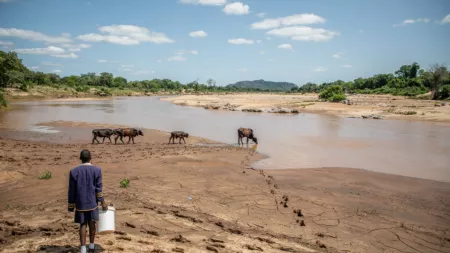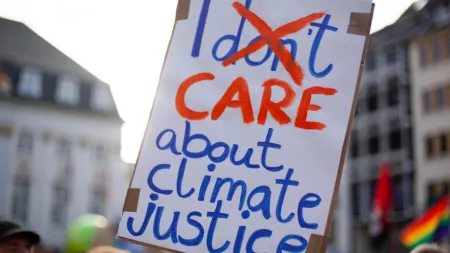March 20, The Hague, Netherlands -- The Intergovernmental Panel on Climate Change (IPCC) is the UN’s climate science body, responsible for producing scientific reports that offer policymakers and the public crucial evidence on the status of the climate crisis.
Today, following an approval session with governments on the Summary for Policymakers, the IPCC released its full Synthesis Report, drawing on a number of its reports published between 2018 and 2022.
Sven Harmeling, Global Policy Co-Lead on Climate Change and Resilience at CARE, said:
"The latest IPCC report reinforces a stark warning from scientists: current climate targets put us on a pathway of nearly 3°C by 2100. The window of opportunity to limit long term planetary damage is closing rapidly. Limiting global heating to 1.5°C is still possible, but it will require the world to go all-in on climate action, with big cuts across all sectors. The technology we need is available today. A rapid and equitable phase out of all fossil fuels and shift to renewable energies is imperative and bears the potential for wide sustainable development benefits."
Marlene Achoki, Global Policy Co-Lead on Climate Justice at CARE, said:
"At 1.1 degrees of warming today, over 3 billion people are already living with the harshest realities of climate change; high temperatures, drought, flooding, and other events that contribute to acute food and water insecurity, malnutrition, and loss of livelihoods. Often women and girls are among the most affected. The devastating impact of Cyclone Freddy in Southern Africa, the longest cyclone ever recorded, puts human faces to these figures. Governments and decision makers must act immediately by stepping up adaptation efforts with ramped up financial support from rich countries. And as the IPCC report indicates, this will only be effective with meaningful local participation and strong integration of gender-based equity considerations."

For CARE International, climate justice is about realizing a future in which the poorest and most marginalized people have significantly improved their wellbeing and can enjoy their human rights through greater resilience to the climate emergency, increased equality and a global temperature rise that is limited to 1.5°C.
Read more about CARE's climate justice work